Next Интересные факты о новогодних и рождественских украшениях  Тренируйте память с помощью слов и цифр Previous
Тренируйте память с помощью слов и цифр Previous
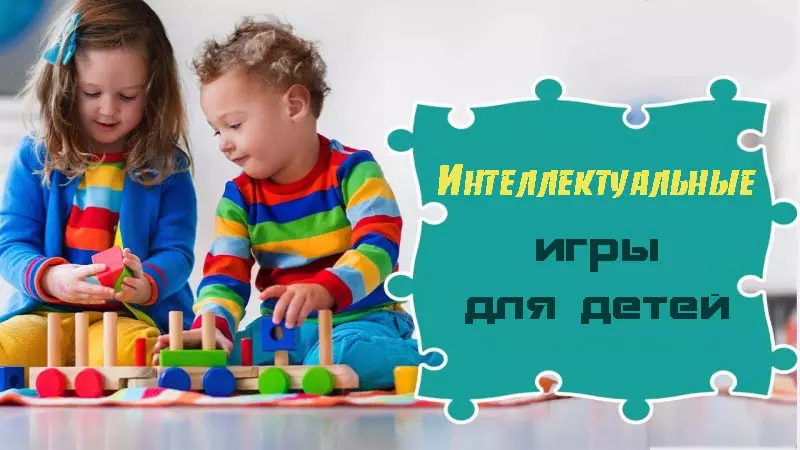
Do you like the stuff? We will be grateful for the reposts.
 Тренируйте память с помощью слов и цифр Previous
Тренируйте память с помощью слов и цифр Previous
These intellectual games occupy a very important place in our life. Mind games allow us to be more successful in life and also help us get rid of forgetfulness. At the same time, we can say that it is very important for the development of the brain of children. Let's talk about some mind games, and these are puzzles, chess and riddles. Jigsaw Puzzles is a game that requires memory and logic. In puzzle game you can use your brain power and start solving according to the puzzle format. Puzzles is an intellectual game for one person. Let's tell you a riddle, which is one of the next mind games. It's like asking a question without answering something, but it's called asking without an answer. Another mind game, on the other hand, is not luck, but a game that requires a lot of attention and is based on intelligence. It is played by many chess players. You can be absolutely sure of this. You can also solve the puzzle in newspapers and some magazines. You can also play chess at home. At the same time, children can play chess with many friends in schools.
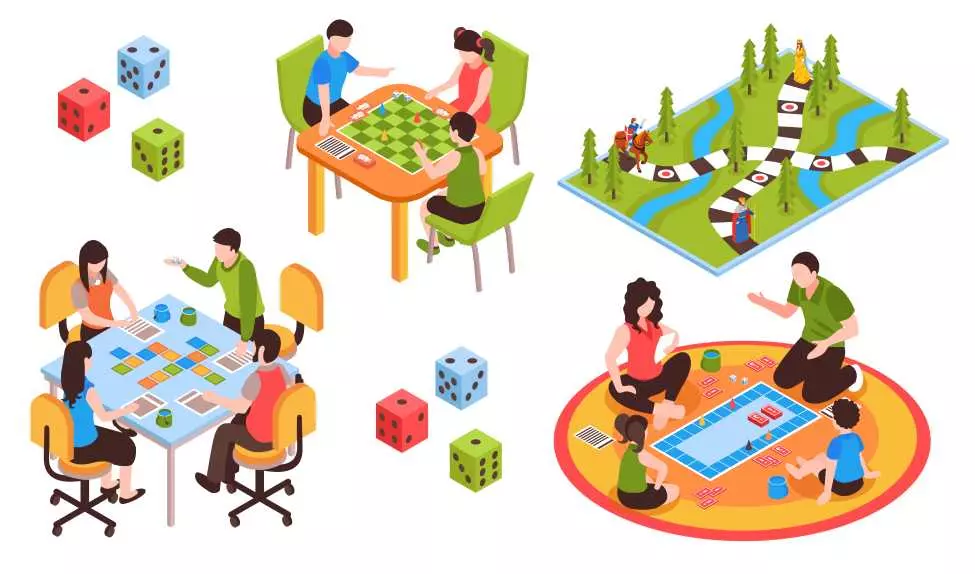
Schools have chess departments, and students can learn and play there. Mind games are suitable for all ages. Most of the games that are also available on the Internet are mind games as well. Mind games are very beneficial for brain development. By playing mind games, you can also do brain gymnastics. You can relax your brain by playing mind games before studying. Thus, it is easier for children to learn the lessons. Their brain relaxes by doing brain gymnastics. This is very useful for preschool mind games. Even preschool intellectual games have been trained. These educational games consist of games such as pramit, dice, sudoku, word games, memory games and dice. Sudoku is a brain game that people of all ages can play. Sudoku, one of the mind games, is also needed to reason and act logically. Everyone can easily learn Sudoku. It is never a difficult intellectual game to learn. All you have to do in Sudoku is insert numbers. Sudoku is played by placing numbers.

Sudoku is one of the most popular brain games. The most logical mind games are chess and sudoku. Let's also talk about the basic rules of Sudoku. All sudoku strings have numbers. The numbers you find should only have one. In each row, in each region and in each column, the found numbers must appear once. Let's talk about the types of Sudoku. There are many types of Sudoku. These are chained sudoku, summdoku, diagonal sudoku, sequential sudoku, regional sudoku and classic sudoku. Of course, there are few of them, but there are more varieties of Sudoku. Only Sudoku is found in size. Sudoku sizes: 4×4, 6×6 and 9×9. If you do not know about intellectual Sudoku game and do not know how to play, you can get information here.
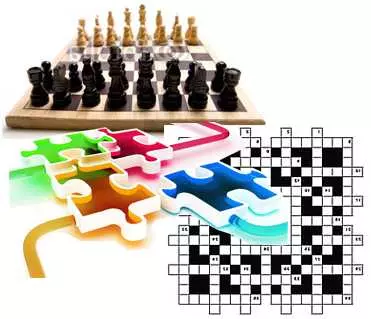
People who have never played Sudoku think that this is a very difficult intellectual game. But this is not at all the case. It is enough to simply use your intelligence, use your Sudoku intelligence and focus on playing Sudoku. Then you will play Sudoku as you get used to it. Another mind game that young children can have fun playing is the word game. The word game is both fun and logic game. Children can strengthen your memory by playing puzzles and word games from an early age. Play on words is also very useful for the education of children. You can also find word games online and are easy to play. It is a game that you can play words very easily. Everyone can also play word games. Another name for the word game is word formation game. You will be able to play by filling in the blanks in the word game. This will insert the letters.

Let's say dice counting, unit dice and dice counting is a math game. Counting dice is an intellectual and mathematical game. Counting dice is an intellectual and mathematical game. Counting the cube is an intellectual game that especially children should play. He can also play a dice-counting game on the Internet. All you have to do is select cubes and write them down in the empty field. It is very important for children to play mind games to teach children how to count cubes. Children who go to school will play these mind games and help in the classroom, especially maths. Children who start exercising will develop their brains through mental play. In addition, mind games are so exciting that children will never get bored while playing.
Making children realize the value of stimulating the mind is always a challenge. Watching them swallow up controversial cartoons like Doraemon might make you cringe, but what can you do? If you tell them to be productive, they are just protesting with their adorable little voices, stating that if they have no homework, why should they do extra work? Now this is a reasonable request, and even the most authoritative mothers will feel a little pain. However, this does not mean that you accept losing this battle or forcing them to do what they do not want to do. The solution is to encourage your children to stimulate their brains through fun activities in the form of games.

Brain games help stimulate the brain and make your child think in non-standard ways to solve a problem. As with exercise, the brain needs its own form of stimulation to improve areas such as analytical thinking, creativity, and problem solving. The best part is that kids are more likely to be open to the idea of play versus, say, reading books.
This game has become a sensational hit for all ages and is known to stop the decline in brain function in older adults. It includes a grid with some numbers inside and the rest is empty. The goal of the game is to fill in all the missing numbers. While this looks deceivingly simple, the catch is that you cannot repeat the same number in the same row or column. The hallmark of this game is that it encourages your child to think 3-4 steps ahead and can help with planning.
Blue Block is a mobile game with an interesting backstory to help your child get carried away. The goal is simple: free the Blue Dragon by rearranging the blocks so that he can get to the exit. He teaches children that brute force is not always an option, and simple logic can make their actions easy!
Both games have been merged because they have similar goals, that is, calculating a random code. Hints are given so your child can understand what the code is. These games help your child analyze the information provided and use it logically to identify the code.
This game ranks high on the recommended brain games for kids because it helps improve memory. The goal of the game is to find all similar pairs of cards in the grid. A maximum of two cards can be revealed at the same time, after which the picture inscribed on them is hidden. Only if the cards are similar will the side with the image be displayed permanently. Thus, your child must remember the correct placement of the cards in order to reveal them all. This game helps to improve the child's attention and concentration.
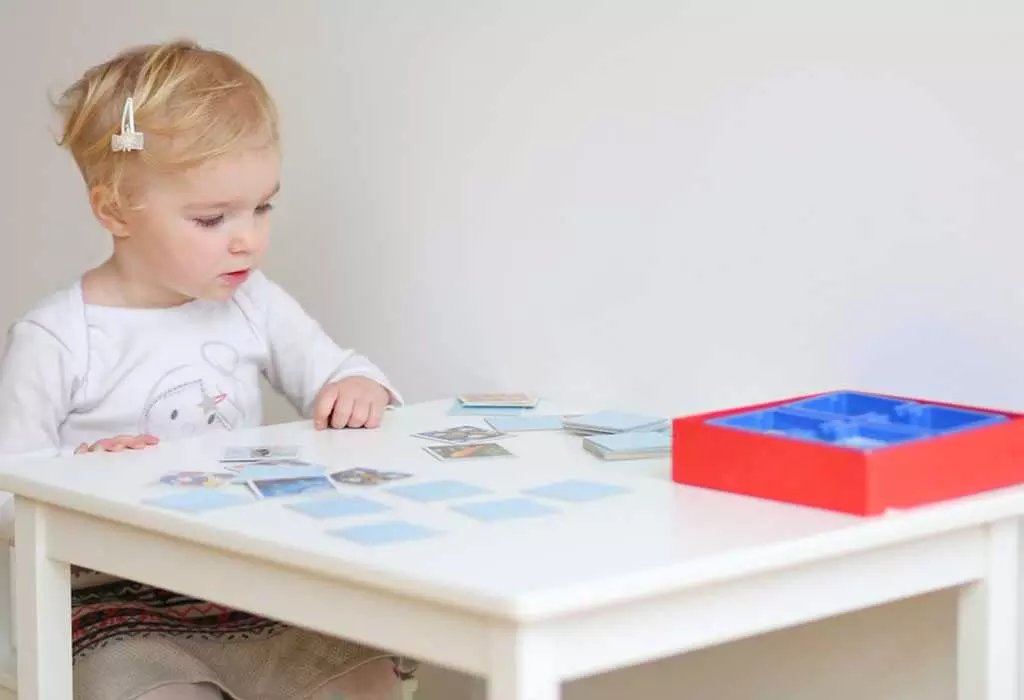
Brain Fitness addictive mobile game is a complex brain training that helps to train logic, attention and information retention.
This game uses audio-visual cues that must be memorized in the correct sequence. It is designed to develop and improve short-term as well as long-term memory. This game does not require parental controls.
This game has been scientifically developed by neurophysical researchers for optimal brain function. It has over 60 activities that test your child's reaction time, memory, attention, flexibility and problem solving skills. The user interface has been beautifully designed, combining art and science in addicting brain game.
Puzzles are good unsupervised activities, as your child's curiosity will help them to get carried away with the game. They help brain development as they develop children's spatial thinking as well as hand-eye coordination.
This game has cards with pictures that must be matched with the corresponding word describing it. For example, a card might have a picture of a fish. Here your child will have to choose a picture associated with the word fish, for example, water. Cards can be of different categories like animals, flowers, household items, etc. This game is great for kids as young as 5 who are still learning new words. He teaches them to memorize names as well as identify words associated with objects.
Although this game is similar to word search, the only difference is that it requires physical activity from the child. This game is best played in an open space such as a park or playground. You pull out the card and your child must find the object mentioned on the card. For example, if the card says "Park Bench", your child will need to find one in their environment. This game also helps to improve their understanding.
This simple game can be found in tutorials, mobile apps, and even in some parks. The gameplay is simple: find the path to the exit. This gives the child many benefits, such as:
- It helps in hand-eye coordination as your child needs to track the path correctly.
- It improves their ability to solve problems by forcing them to think outside the box. If one approach fails, they adapt and find other possible routes to get to the other side.
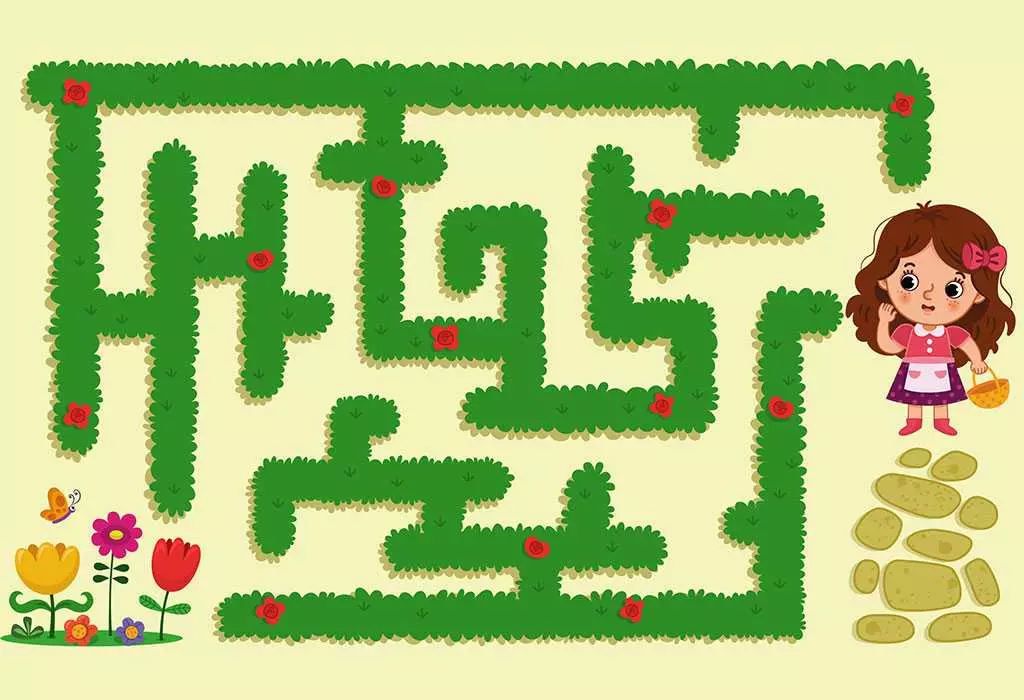
This is one of the games that children from all over the world play. This helps children improve their analytical skills. For a young developing mind, it helps to distinguish a viable hideout from a bad one.
In addition to learning their native language, children can learn about another regional language at home. Research has shown that it helps stimulate their prefrontal cortex, which is also linked to improved memory. However, just getting your child to enroll in a language course is not enough. While they can learn the language in class, it is undoubtedly important that they find a way to actually speak and practice it. For example, if they are learning Punjabi, you can watch a Punjabi movie together or listen to Punjabi songs, etc. so that they can learn the language better. You can even ask them to interpret a movie or song for you. While it is unlikely that they will give a flawless translation, it will boost their confidence and make them learn.
Games such as Snakes and Ladders, Monopoly, Othello and Chess are great for helping you understand your child's social skills. Is your child patient and waiting for their turn? Does he cry and act like a loser when he loses the game? You will notice these skills as you play along, and you can teach them how to play gracefully and win with humility if necessary.
It can be a little difficult to get your child to learn how to write numbers, as abstract concepts can sometimes be difficult for him to understand. The music numbers use visual aids as well as music to make learning fun and interesting. First, place Lego blocks with ascending numbers in your child's room. For example, you can place one Lego block in the middle of the room and two blocks near the nightstand. This can be done up to 10, 15, or 20, depending on how many numbers you want your child to learn and the presence of Lego blocks. Then set up the music system with your child's favorite songs in a nearby location so you can hear it from the room. Then turn on the music and dance like crazy with your child; they will definitely join! Finally, stop the music and call the number! This is when your child has to run to the area of the room with the correct Lego bricks. This process can be repeated until they have learned all the numbers. This game can be used to make them learn the alphabets - just replace Lego blocks with alphabet blocks.
Children don't always respond well to mind games. Sometimes they just want to have fun. Here are a few things to keep in mind as you introduce them to these brain games:
The child may not understand the game at first sight, or she may not immediately like it. You can let him play a different game and gradually introduce a new brain game after a few days.
Sometimes the number of participants can induce your child to play an intellectual game. Create a fun atmosphere with lemonade and snacks and you're done.
Sometimes you will be tempted to leave your child alone to play a game and do something else. From time to time you can let him play alone, but if you keep doing this, your child may lose interest and do something else without you knowing. Your participation is essential so you know how your child is improving. So make sure you always get involved.
Brain stimulation games can help your child learn and improve existing skills without ever knowing they are learning. Your little one will become more creative and try to find different ways to solve the problem. By playing these games, your child will also be able to concentrate better and you will notice a significant improvement in his observation and reasoning skills.
It is your responsibility as parents to develop your child's brain. However, if you force your children to do something that they do not like, they may not be making the effort. Just try to get your child to read the newspaper and see what happens! The solution is to find games that your child responds well to and to engage himself.

Schools have chess departments, and students can learn and play there. Mind games are suitable for all ages. Most of the games that are also available on the Internet are mind games as well. Mind games are very beneficial for brain development. By playing mind games, you can also do brain gymnastics. You can relax your brain by playing mind games before studying. Thus, it is easier for children to learn the lessons. Their brain relaxes by doing brain gymnastics. This is very useful for preschool mind games. Even preschool intellectual games have been trained. These educational games consist of games such as pramit, dice, sudoku, word games, memory games and dice. Sudoku is a brain game that people of all ages can play. Sudoku, one of the mind games, is also needed to reason and act logically. Everyone can easily learn Sudoku. It is never a difficult intellectual game to learn. All you have to do in Sudoku is insert numbers. Sudoku is played by placing numbers.

Sudoku is one of the most popular brain games. The most logical mind games are chess and sudoku. Let's also talk about the basic rules of Sudoku. All sudoku strings have numbers. The numbers you find should only have one. In each row, in each region and in each column, the found numbers must appear once. Let's talk about the types of Sudoku. There are many types of Sudoku. These are chained sudoku, summdoku, diagonal sudoku, sequential sudoku, regional sudoku and classic sudoku. Of course, there are few of them, but there are more varieties of Sudoku. Only Sudoku is found in size. Sudoku sizes: 4×4, 6×6 and 9×9. If you do not know about intellectual Sudoku game and do not know how to play, you can get information here.

People who have never played Sudoku think that this is a very difficult intellectual game. But this is not at all the case. It is enough to simply use your intelligence, use your Sudoku intelligence and focus on playing Sudoku. Then you will play Sudoku as you get used to it. Another mind game that young children can have fun playing is the word game. The word game is both fun and logic game. Children can strengthen your memory by playing puzzles and word games from an early age. Play on words is also very useful for the education of children. You can also find word games online and are easy to play. It is a game that you can play words very easily. Everyone can also play word games. Another name for the word game is word formation game. You will be able to play by filling in the blanks in the word game. This will insert the letters.

Let's say dice counting, unit dice and dice counting is a math game. Counting dice is an intellectual and mathematical game. Counting dice is an intellectual and mathematical game. Counting the cube is an intellectual game that especially children should play. He can also play a dice-counting game on the Internet. All you have to do is select cubes and write them down in the empty field. It is very important for children to play mind games to teach children how to count cubes. Children who go to school will play these mind games and help in the classroom, especially maths. Children who start exercising will develop their brains through mental play. In addition, mind games are so exciting that children will never get bored while playing.
15 innovative and fun brain games for kids
Making children realize the value of stimulating the mind is always a challenge. Watching them swallow up controversial cartoons like Doraemon might make you cringe, but what can you do? If you tell them to be productive, they are just protesting with their adorable little voices, stating that if they have no homework, why should they do extra work? Now this is a reasonable request, and even the most authoritative mothers will feel a little pain. However, this does not mean that you accept losing this battle or forcing them to do what they do not want to do. The solution is to encourage your children to stimulate their brains through fun activities in the form of games.

The importance of mind games for children
Brain games help stimulate the brain and make your child think in non-standard ways to solve a problem. As with exercise, the brain needs its own form of stimulation to improve areas such as analytical thinking, creativity, and problem solving. The best part is that kids are more likely to be open to the idea of play versus, say, reading books.
Difficult games for children
1. Sudoku
This game has become a sensational hit for all ages and is known to stop the decline in brain function in older adults. It includes a grid with some numbers inside and the rest is empty. The goal of the game is to fill in all the missing numbers. While this looks deceivingly simple, the catch is that you cannot repeat the same number in the same row or column. The hallmark of this game is that it encourages your child to think 3-4 steps ahead and can help with planning.
2. Blue Block / Blue Block
Blue Block is a mobile game with an interesting backstory to help your child get carried away. The goal is simple: free the Blue Dragon by rearranging the blocks so that he can get to the exit. He teaches children that brute force is not always an option, and simple logic can make their actions easy!
3. Color code, mind control and guess the code
Both games have been merged because they have similar goals, that is, calculating a random code. Hints are given so your child can understand what the code is. These games help your child analyze the information provided and use it logically to identify the code.
4. Memory
This game ranks high on the recommended brain games for kids because it helps improve memory. The goal of the game is to find all similar pairs of cards in the grid. A maximum of two cards can be revealed at the same time, after which the picture inscribed on them is hidden. Only if the cards are similar will the side with the image be displayed permanently. Thus, your child must remember the correct placement of the cards in order to reveal them all. This game helps to improve the child's attention and concentration.

Memory games
5. Fitness for the brain
Brain Fitness addictive mobile game is a complex brain training that helps to train logic, attention and information retention.
6. Just smart kids
This game uses audio-visual cues that must be memorized in the correct sequence. It is designed to develop and improve short-term as well as long-term memory. This game does not require parental controls.
7. Luminosity
This game has been scientifically developed by neurophysical researchers for optimal brain function. It has over 60 activities that test your child's reaction time, memory, attention, flexibility and problem solving skills. The user interface has been beautifully designed, combining art and science in addicting brain game.
8. Puzzle
Puzzles are good unsupervised activities, as your child's curiosity will help them to get carried away with the game. They help brain development as they develop children's spatial thinking as well as hand-eye coordination.
9. Search for words
This game has cards with pictures that must be matched with the corresponding word describing it. For example, a card might have a picture of a fish. Here your child will have to choose a picture associated with the word fish, for example, water. Cards can be of different categories like animals, flowers, household items, etc. This game is great for kids as young as 5 who are still learning new words. He teaches them to memorize names as well as identify words associated with objects.
10. Find it
Although this game is similar to word search, the only difference is that it requires physical activity from the child. This game is best played in an open space such as a park or playground. You pull out the card and your child must find the object mentioned on the card. For example, if the card says "Park Bench", your child will need to find one in their environment. This game also helps to improve their understanding.
11. Labyrinth
This simple game can be found in tutorials, mobile apps, and even in some parks. The gameplay is simple: find the path to the exit. This gives the child many benefits, such as:
- It helps in hand-eye coordination as your child needs to track the path correctly.
- It improves their ability to solve problems by forcing them to think outside the box. If one approach fails, they adapt and find other possible routes to get to the other side.

12. Hide and seek
This is one of the games that children from all over the world play. This helps children improve their analytical skills. For a young developing mind, it helps to distinguish a viable hideout from a bad one.
13. New languages
In addition to learning their native language, children can learn about another regional language at home. Research has shown that it helps stimulate their prefrontal cortex, which is also linked to improved memory. However, just getting your child to enroll in a language course is not enough. While they can learn the language in class, it is undoubtedly important that they find a way to actually speak and practice it. For example, if they are learning Punjabi, you can watch a Punjabi movie together or listen to Punjabi songs, etc. so that they can learn the language better. You can even ask them to interpret a movie or song for you. While it is unlikely that they will give a flawless translation, it will boost their confidence and make them learn.
14. Board games
Games such as Snakes and Ladders, Monopoly, Othello and Chess are great for helping you understand your child's social skills. Is your child patient and waiting for their turn? Does he cry and act like a loser when he loses the game? You will notice these skills as you play along, and you can teach them how to play gracefully and win with humility if necessary.
15. Musical numbers
It can be a little difficult to get your child to learn how to write numbers, as abstract concepts can sometimes be difficult for him to understand. The music numbers use visual aids as well as music to make learning fun and interesting. First, place Lego blocks with ascending numbers in your child's room. For example, you can place one Lego block in the middle of the room and two blocks near the nightstand. This can be done up to 10, 15, or 20, depending on how many numbers you want your child to learn and the presence of Lego blocks. Then set up the music system with your child's favorite songs in a nearby location so you can hear it from the room. Then turn on the music and dance like crazy with your child; they will definitely join! Finally, stop the music and call the number! This is when your child has to run to the area of the room with the correct Lego bricks. This process can be repeated until they have learned all the numbers. This game can be used to make them learn the alphabets - just replace Lego blocks with alphabet blocks.
Things to remember when playing brain games with your child
Children don't always respond well to mind games. Sometimes they just want to have fun. Here are a few things to keep in mind as you introduce them to these brain games:
1. Be patient with your child
The child may not understand the game at first sight, or she may not immediately like it. You can let him play a different game and gradually introduce a new brain game after a few days.
2. Attract more participants
Sometimes the number of participants can induce your child to play an intellectual game. Create a fun atmosphere with lemonade and snacks and you're done.
3. Always participate
Sometimes you will be tempted to leave your child alone to play a game and do something else. From time to time you can let him play alone, but if you keep doing this, your child may lose interest and do something else without you knowing. Your participation is essential so you know how your child is improving. So make sure you always get involved.
Brain stimulation games can help your child learn and improve existing skills without ever knowing they are learning. Your little one will become more creative and try to find different ways to solve the problem. By playing these games, your child will also be able to concentrate better and you will notice a significant improvement in his observation and reasoning skills.
It is your responsibility as parents to develop your child's brain. However, if you force your children to do something that they do not like, they may not be making the effort. Just try to get your child to read the newspaper and see what happens! The solution is to find games that your child responds well to and to engage himself.
Do you like the stuff? We will be grateful for the reposts.
Comments:
Be the first to comment on the article!
Interesting facts (Collapse) |
|---|
| |
Петро Полюхович © 2011-2024
Join us if you are a true crossword puzzler!


 Login
Login Crosswords
Crosswords Conundrums
Conundrums Sudoku
Sudoku English
English Turkish
Turkish About
About
